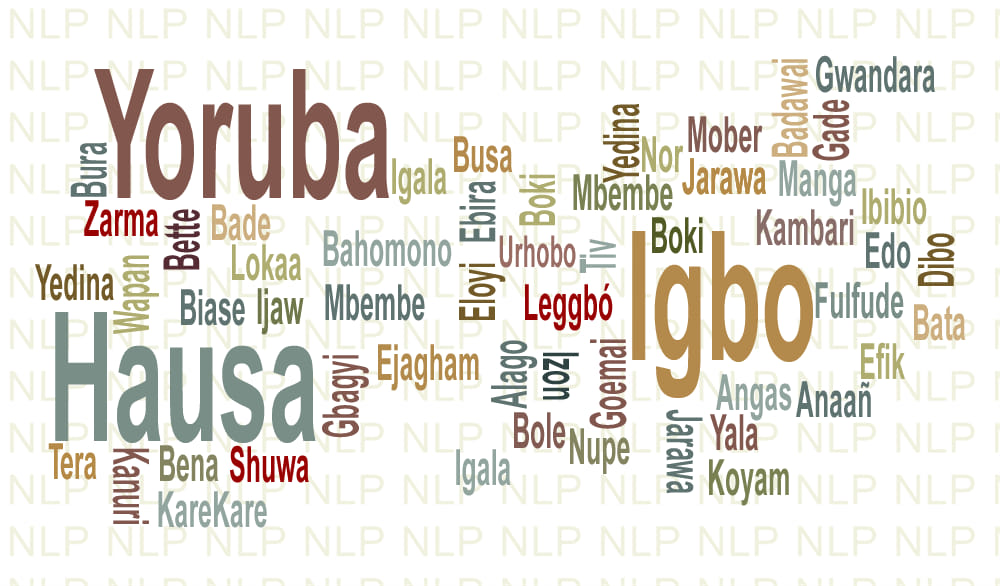Respite for our indigenous languages
There seems to be respite coming to our indigenous languages from the strangulating grip of the English language. Over the weekend, I noted the news item making the rounds that Lagos State University (LASU) has included a compulsory Yoruba Language course, for all its students starting from the 2023/2024 academic session. The Yoruba Language Studies […]

Nigerian Languages
There seems to be respite coming to our indigenous languages from the strangulating grip of the English language. Over the weekend, I noted the news item making the rounds that Lagos State University (LASU) has included a compulsory Yoruba Language course, for all its students starting from the 2023/2024 academic session. The Yoruba Language Studies course is said to have been designed to provide students with a comprehensive understanding of the Yoruba language and is expected to equip students with language skills, cultural knowledge, and historical context, fostering a deeper appreciation for the Yoruba culture.
All is well and good. It is a piece of cheering news, from my perspective, to find a state that is forging ahead with a cultural step-up that is bound to pay dividends to our future generation. This seems to be a continuation of a piece of legislation passed by the Lagos State House of Assembly in 2017 making the teaching of Yoruba language compulsory in both private and public schools in the state. The bill became law the following year in February when Governor Akinwunmi Ambode signed it.
After the bill was signed the Education Commissioner Kehinde Bamigbetan explained further: “The Yoruba language has become mandatory for all candidates seeking admission into our tertiary institutions and will now become a major requirement to engage in normal business communication in Lagos State.” Bamigbetan said anyone seeking admission into the Lagos State University, Lagos State Polytechnic, Michael Otedola College of Primary Education, Adeniran Ogunsanya College of Education, Lagos State School of Nursing, and Lagos State College of Health Technology, among others, must have credit in the Yoruba Language.
It is a step in the right direction, though it might be misconstrued as harsh and rather exclusive. Nevertheless, you might ask, how do we get rid of the overwhelming dominance of the English language in our daily lives if we don’t enact and see through such arm-fisted legislation? I will say that these are still tentative prescriptions. Much more will need to be done. Even in Great Britain where the nationalities of the Irish, Welsh, and Scots made up what is now the United Kingdom, there have been strong agitations for the use of their different languages. The Irish were the first to throw off the yoke of the English language when they were able to wrench their independence in 1949. English has long been replaced in the Republic of Ireland by the Irish language as the official mode of communication.
The Welsh have been at it since the 1960s. I lived in Swansea, South Wales in the late 1970s/early 1980s, and witnessed the intensification of the agitation for the use of the Welsh language in daily life; education, commerce, radio, TV, etc. English first became the official language in Wales in the 16th century when King Henry V111 signed the Acts of Union, which in effect officially banned the Welsh language from the spheres of law and administration. Further closer administrative and commercial interaction with England gradually obliterated the Welsh language. At the turn of the 19th century, only a handful spoke the language, mainly very old people living in remote rural areas. That’s when the struggle started in earnest to return the Welsh language to everyday use.
By the time I left, there was an exclusive Welsh TV station and much later there was legislation in 1993 making Welsh and English to be on equal footing. Press forward to the millennium years, and the progress of the Welsh language has gone in leaps and bounds. I visited Swansea recently and was astounded by the rapid progress the Welsh language has made in the space of about forty years. It has replaced the English language as the official language of communication. As soon as one goes across into Wales from England, one immediately gets to feel that this is Welsh land. The radio and TV stations are awash with Welsh language programs. All signposts are in Welsh and English. All commercial documents are assigned in both Welsh and English.
Admittedly, we have been rather slow to assert the relevance of our local languages in our daily affairs. The languages in the southern parts of this country could be the ones in most danger of being swamped by the pernicious influence of the English language. This could be because they have had a far longer association with the English language. In the northern parts of the country, the danger lurking is not less either. Maybe because in the North, the Hausa language seems to predominate in commerce, there is a tendency to be less vigilant. This should not be so. Expansion in education opportunities and the emergence of new social media have tripled the thrust of the English language into our psyche.
Lagos State has now shown the way. Other states should join the queue. And it should not just stop in schools, colleges, radio and TV stations or books and newspapers. One would love to see the presence of our languages in the streets. For example, cities like Kano, Zaria, and Sokoto should signpost streets in the Hausa language. Maiduguri should label its streets in those peculiar Kanuri letters.
